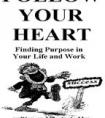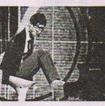—Who's the boy _____ black pants? — He's _____ cousin. [ ]A. in, mine B. in, his C. on, my D. on, hers -七年级英语
(3) at 与 in 的另一个区别是:at 用于指较小的地方,而 in 用于指较大的地方。如:
in Shanghai 在上海 at the station 在车站
但是,大与小是相对的,有时随着说话者的着眼点不同,大地方也可能用 at(比如把一个大地方看作一个点时)。如:
Our plane refuelled at London. 我们的飞机在伦敦加油。
We stopped for an hour at Moscow on our way to Paris. 我们在去巴黎的途中在莫斯科停了 1 个小时。
(4) 介词 on 用于地点,主要指在某物的表面。如:
What’s on the table? 桌上有什么?
There’s a wallet lying on the ground. 地上有个钱包。
注:在少数搭配中,也用介词 on。如:
He works on a farm. 他在农场工作。
3. 在某些搭配中,三者的区别与英国英语和美国英语有关:
in the street (英) / on the street (美) 在街上
in the road (英) / on the road (美) 在路上
in the team (英) / on the team (美) 在这个队
at the weekend (英) / on the weekend (美) 在周末
at weekends (英) / on weekends (美) 在周末
4. 有时三者的差别与搭配习惯和用法有关:
in bed / on the bed 在床上
in the tree (多指树外之物) / on the tree (多指树本身之物) 在树上
介词besides,but,except的用法区别:
1. 三者都可表示“除外”,但 besides 表示一种累加关系,意指“除了什么之外,还有……”;
而 except 或 but 则表示一种排除关系,意指“除了什么之外,不再有……”。如:
Besides his wife,his daughter also went to see him. 除他妻子外,他女儿也去看过他(即妻子女儿都去看过他)。
Nobody went to see him except [but] his wife. 除他妻子外,没有一个人看过他(即只有他妻子去看过他)。
注:在否定句中,besides 也表示“除……之外不再有…… ”,与but, except 同义。如:
No one passed the exam besides [except] Jim. 除吉姆外,没一个人通过考试。
2. 关于 but 与 except:
(1) 两者都可表示“除……外不再有……”,但含义上略有差别:
but侧重指意义的几乎完整性,而 except 则侧重指后面除去的部分。比较:
All are here but one. 除一个人都到了。
All are here except one. 还有一个人没到。
(2) 在现代英语中,but 的介词用法十分有限,一般说来,它只能用在下列词语之后:
① no, no one, nobody, nothing, nowhere 等
② any, anyone, anybody, anything, anywhere 等
③ every, everyone, everybody, everything, everywhere 等
④ all, none 等
⑤ who, what, where 等
Everyone knows it but you. 除你之外大家都知道。
I haven’t told anybody but you. 除你之外,我没告诉任何人。
No one but he [him] showed much interest in it. 除他之外没有一个人对此有很大兴趣。
一般说来,若没有出现上述词汇,就不宜使用介词 but,否则可能造成错句。但是 except 却没有以上限制。比较:
正:The window is never opened except in summer. 除夏天外,这扇窗户从不打开。
误:The window is never opened but in summer.
(3) but 一定不能用于句首,except 通常不用于句首:
除我之外每个人都累了。
正:Everyone is tired but (except) me.
正:Everyone but (except) me is tired.
误:But (Except) me, everyone is tired.
注:except for 可用于句首,表示 except 的意思:
正:Except for me, everyone is tired.
3. 关于 except 与 except for:
except 主要用来谈论同类的东西,而 except for 则主要用来谈论不同类的东西,有时含有惋惜之意。如:
All compositions are well written except yours. 除了你的作文外,其他的作文都写得很好。
His composition is good except for a few spelling mistakes. 他的作文写得不错,只是有几处拼写错误。
注:若用于句首,则 except for 与 except 同义(但 except 通常不用于句首)。
4. 关于 except for 与 but for:
except for 主要表示排除,but for 主要表示一种虚拟条件(与虚拟语气连用)。如:
Except for me, everyone passed the exam. 除了我之外,大家都通过了考试。
But for my help, she would not have passed the exam. 若不是我的帮助,她就不会通过考试。
But for the atmosphere plants would die. 如果没有大气,植物就会死亡。
5. besides 除用作介词外,还用作副词,其意为“此外”、“而且”,可用于分句句首(通常用逗号隔开)或句尾。如:
I don’t want to go; besides, I’m too tired. 我不想去,而且我也太累了。
This car belongs to Smith, and he has two others besides. 这部车是史密斯的,此外他还有两部。
介词的用法口诀:<?xml:namespace prefix = "o" ns = "urn:schemas-microsoft-com:office:office" />
早、午、晚要用in,at黎明、午夜、点与分。
年、月、年月、季节、周,阳光、灯、影、衣、冒in。
将来时态in。。。以后,小处at大处in。
有形with无形by,语言、单位、材料in。
特征、方面与方式,心情成语惯用in。
介词at和to表方向,攻击、位置、恶、善分。
日子、日期、年月日,星期加上早、午、晚,
收音、农场、值日on,关于、基础、靠、着论。
着、罢、出售、偷、公、假,故意、支付、相反,准。
特定时日和“一……就”,on后常接动名词。
年、月、日加早、午、晚,of之前on代in。
步行、驴、马、玩笑on,cab,carriage则用in。
at山脚、门口、在当前,速、温、日落、价、核心。
工具、和、同随with,具有、独立、就、原因。
就……来说宾译主,对、有、方状、表细分。
海、陆、空、车、偶、被by,单数、人类knowtoman。
this、that、tomorrow,yesterday,next、last、one。
接年、月、季、星期、周,介词省略已习惯。
over、under正上下,above、below则不然,
若与数量词连用,混合使用亦无关。‘
beyond超出、无、不能,
- 最新内容
- 相关内容
- 网友推荐
- 图文推荐
| [家长教育] 孩子为什么会和父母感情疏离? (2019-07-14) |
| [教师分享] 给远方姐姐的一封信 (2018-11-07) |
| [教师分享] 伸缩门 (2018-11-07) |
| [教师分享] 回家乡 (2018-11-07) |
| [教师分享] 是风味也是人间 (2018-11-07) |
| [教师分享] 一句格言的启示 (2018-11-07) |
| [教师分享] 无规矩不成方圆 (2018-11-07) |
| [教师分享] 第十届全国教育名家论坛有感(二) (2018-11-07) |
| [教师分享] 贪玩的小狗 (2018-11-07) |
| [教师分享] 未命名文章 (2018-11-07) |


![—______ is Jenny.—I’m Gina. Nice to meet you.[ ]A. I’mB. His nameC. I’mD. My name-七年级英语](http://www.00-edu.com/d/file/ks/4/2/wuzhudaici/2019-11-29/small48b153aa794daeb090c5d2505d5cbbac1575042450.png)



